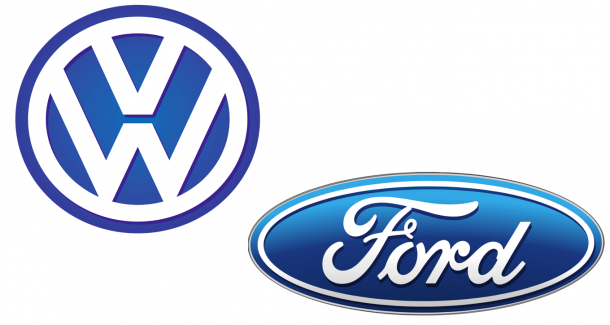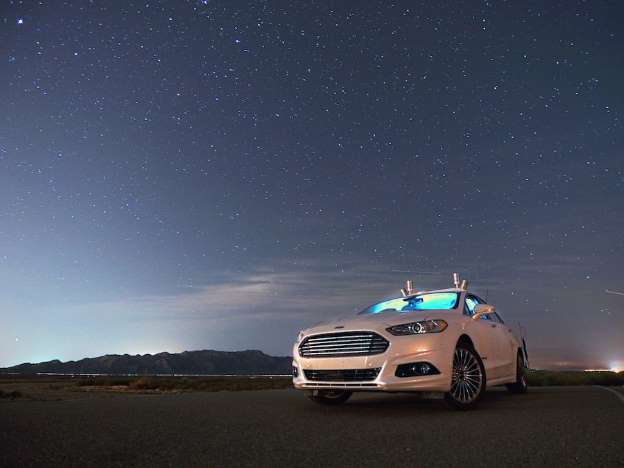Now Reading: Volkswagen To Spend Almost $2 Billion In Ford Self-Driving Car Venture
-
01
Volkswagen To Spend Almost $2 Billion In Ford Self-Driving Car Venture
Volkswagen To Spend Almost $2 Billion In Ford Self-Driving Car Venture

Volkswagen AG is preparing to invest about $1.7 billion in a self-driving car venture with Ford Motor’s Argo subsidiary, according to people knowledgeable with the matter.
Following months of discussions, the German and U.S. automakers have agreed to make Argo the nucleus of an equally held joint venture that could get extra assets from Volkswagen over time.
As the industry start to move away from polluting combustion engines and standard models of car ownership, global automakers have been finding alliances and joint ventures to share the huge investments needed to develop future fleets of electric and self-driving vehicles.
A VW-Ford deal would generate allies of the world’s biggest automaker by sales and the second-largest auto maker in the U.S. with combined worldwide reach of about a fifth of new vehicle sales world-wide.
The agreement to create a self-driving vehicle joint venture is part of wider cooperation talks that have been under way since 2018, beginning with an agreement to work together in manufacturing light commercial vehicles, including utility vans and midsize pickup trucks.
The talks are complicated, but showing progress, the people stated, adding that a final deal could still fail to materialize.
Under the structure as presently envisaged, Volkswagen would give nearly $600 million as an equity investment in Ford’s Argo venture, about 50% of what Ford initially sought from its future partner. Volkswagen will give around $1.1 billion in working capital for the venture’s research and development. The two automakers will both own half of the entity.
Volkswagen could also link extra assets to the venture like Audi AG’s Munich-based technology group Autonomous Intelligent Driving and Moia, VW’s Berlin-based mobility-services company. But initially AID and Moia won’t be fully combined into Argo.
“It’s my opinion that you can’t do this alone,” Ford Chief Executive Jim Hackett stated last month when discussing the company’s VW alliance, which he referred as a “foundational framework.”
Ford has stated it’s spending $11 billion to construct electric vehicles over a seven-year stretch ending in 2022. The company also stated it would invest an average of around $800 million through 2023 on self-driving-car technology.
Stay Informed With the Latest & Most Important News
Previous Post
Next Post
-
 01Polestar Boss Says It’s Time To Outrun BMW M And Mercedes-AMG
01Polestar Boss Says It’s Time To Outrun BMW M And Mercedes-AMG -
 02Spy Shots: 2027 Mitsubishi Pajero Spotted in Testing Ahead of Possible U.S. Return
02Spy Shots: 2027 Mitsubishi Pajero Spotted in Testing Ahead of Possible U.S. Return -
 032026 Toyota Hilux EV: A Powerful Truck with Silent Torque
032026 Toyota Hilux EV: A Powerful Truck with Silent Torque -
![2027 Mercedes-Benz S-Class Debuts with V8 Engine [Photo Gallery]](https://speedlux.com/wp-content/uploads/2026/01/2027-Mercedes-Benz-S-Class-33-155x125.jpg) 042027 Mercedes-Benz S-Class Debuts with V8 Engine [Photo Gallery]
042027 Mercedes-Benz S-Class Debuts with V8 Engine [Photo Gallery] -
 052026 Corvette ZR1 Production Surges Past Expectations as Output Clears 1,000 Units
052026 Corvette ZR1 Production Surges Past Expectations as Output Clears 1,000 Units -
 06Spy Photos: VW ID. Polo GTI Goes Electric with 223 HP and 280 Miles of Range
06Spy Photos: VW ID. Polo GTI Goes Electric with 223 HP and 280 Miles of Range -
 07The Controversial Ford Voodoo V8 That Was Killed Off Too Early
07The Controversial Ford Voodoo V8 That Was Killed Off Too Early



![2027 Mercedes-Benz S-Class Debuts with V8 Engine [Photo Gallery]](https://speedlux.com/wp-content/uploads/2026/01/2027-Mercedes-Benz-S-Class-33-700x394.jpg)









































